Citizen Science Initiatives
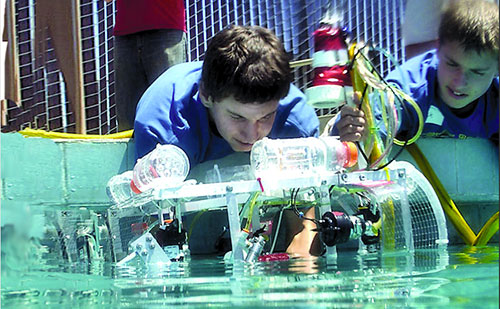
The annual MATE Center competition challenges students--kindergarten through university--from all over the world to design and build remotely operated underwater vehicles (ROVs) to tackle missions modeled after scenarios from the ocean workplace. The new and ever-increasing interest in robotics among students young and old suggests real potential for future ocean science.
INNOVATIVE CITIZEN INITIATIVES OFFERING REAL
POTENTIAL FOR THE FUTURE OF OCEAN SCIENCE
Citizen science supports oceanographic research projects that help expand the understanding of the world’s oceans through technological advancements, intelligent observation and analysis, and open sharing of information.
Citizen Science is a term used to describe non-specialist research and data collection carried out by private individuals, foundations and organizations utilizing the power of the internet to collaborate around the globe. There are many innovative projects and ways that anyone can collect data and conduct research using sophisticated yet affordable submersible equipment. Interest in citizen science among curious students young and old not only builds awareness of key ocean issues but also promotes greater commitment by the general public to commit to creating positive change for the future of the ocean. Citizen science is vital, imaginative, innovative, and international.
Here we offer some remarkable examples of programs in the United States and around the world that are carrying out research projects, gathering data, and helping scientists answer real-world problems through citizen-led exploration and discovery.
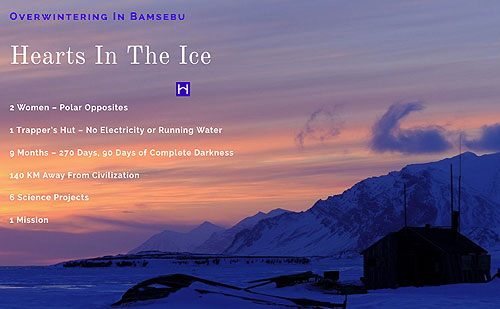
HEARTS IN THE ICE
Hearts in the Ice is an innovative project launched in 2018 that will create global dialogue and social engagement around climate change in the Polar Regions. In August of 2019, seasoned expedition leaders Hilde Fålun Strøm and Sunniva Sorby will inhabit an historic 20-square meter trapper’s cabin known as Bamsebu. The goal of the project is to show rapid climate change escalation and what we can do to mitigate the effects. Life at Bamsebu will be broadcast and published via Iridium satellite through social media to scientists, school children, adventurers, and interested citizens from around the world and will showcase the citizen science observations made by Strom and Sorby.
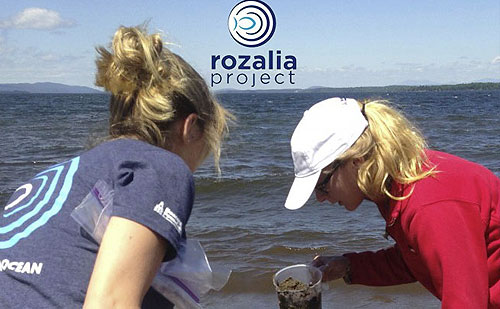 ROZALIA PROJECT
ROZALIA PROJECT
The Rozalia Project for a Clean Ocean is dedicated to connecting people of all ages to their underwater world, to inspire them to be part of the plastic pollution solution by using underwater robots and sonar as well as nets to locate and remove marine debris. Rosalia Project is committed to accurate data collection and working with sailors, fishermen, boaters, concerned citizens, schools, municipalities and more to clean up and progress solutions
to the marine debris crisis. Their programs include underwater trash-hunting with ROVs, presentations, STEM-based activities for grades 3 through 12, coastal cleanups and research projects throughout North America.
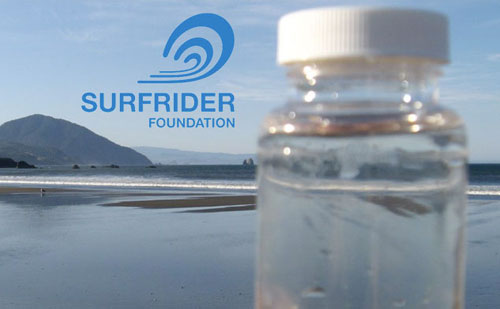
SURFRIDER FOUNDATION
Among its many citizen science initiatives, Surfider has a chapter-run program called the Blue Water Task Force, a water testing program designed specifically to fill in the data gaps left by agency programs to help with resource allocation in areas with the biggest concerns for public health risk. The Blue Water Task Force citizen science program tests approximately 25 surf spots and streams that discharge onto popular recreation sites. The program continues to work with states to improve public notification about chronically polluted sites and to direct available resources appropriately.
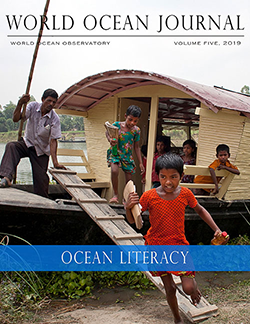
Read more about Citizen Science initiatives and other non-traditional ways of teaching and learning about the ocean in our World Ocean Journal, Volume 5: OCEAN LITERACY.


